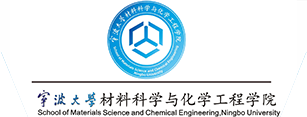报告时间:12月28日上午10点
报告地点:博彩导航
1227会议室
报告人:张其春(香港城市大学)
报告人简介:
Prof. Qichun Zhang received his B.S. at Nanjing University in China in 1992, MS in physical organic chemistry (organic solid lab) at Institute of Chemistry, Chinese Academy of Sciences in 1998, MS in organic chemistry at University of California, Los Angeles (USA, 2003), and completed his Ph.D. in chemistry at University of California Riverside in 2007. Then, he joined Prof. Kanatzidis’ group at Northwestern University as a Postdoctoral Fellow (Oct. 2007 –Dec. 2008). Since Jan. 2009, he joined School of Materials Science and Engineering at Nanyang Technological University (NTU, Singapore) as an Assistant Professor. On Mar 1st, 2014, he has promoted to Associate Professor with tenure. On Sep 1st 2020, he moved to Department of Materials Science and Engineering at City University of Hong Kong as a full professor. Currently, he is an associate editor of J. Solid State Chemistry & Susmat, the International Advisory Board member of Chemistry – An Asian Journal, the Advisory board member of Journal of Materials Chemistry C, the Advisory board member of Materials Chemistry Frontiers, the Advisory board member of Inorganic Chemistry Frontiers, the Advisory board member of Aggerate, the Advisory board member of Materials Advances, and the Advisory board member of Science Chinese Materials and small structures. Also, he is Guest Editors of CCS Chemistry (2020-2021), Advanced Materials (2020-2021), J Mater Chem C (2020-2021, 2017-2018), Mater. Chem Front (2019-2020), Inorganic Chemistry Frontiers (2016-2017, 2017-2018). From 2018 to 2021, he has been recognized as one of highly-cited researchers (top 1%) in cross-field in Clarivate Analytics and In 2022 & 2023, he was recognized as one of highly-cited researchers (top 1%) in Materials Chemistry in Clarivate Analytics. He is a fellow of the Royal Society of Chemistry. Currently, his research focuses on carbon-rich conjugated materials and their applications. Till now, he has published >515 papers and 10 patents (H-index: 109).
报告摘要:
Since Yaghi et al. reported the first covalent organic frameworks (COFs) in 2005, COFs have caused many scientists' interest in both fundamental research (synthesis, properties, theoretical simulation, etc.) and possible applications (gas absorption/separation, catalysis, energy-related devices, sensing, imaging, and so on). In this talk, I will present our recent progress on the preparation of novel COFs as well as their diverse applications in optoelectrical devices.
欢迎广大师生踊跃参加!

